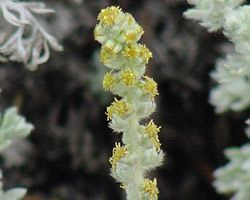|
Alan Ackerman Beetle
Alan "Doc" Ackerman Beetle (8 June 1913 in Princeton, New Jersey – 27 March 2003 in Riverton, Wyoming) was an American agrostologist and botanist Botany, also called , plant biology or phytology, is the science of plant life and a branch of biology. A botanist, plant scientist or phytologist is a scientist who specialises in this field. The term "botany" comes from the Ancient Greek wo .... He was a professor of the University of Wyoming College of Agriculture in Laramie. Beetle adopted both surnames of his parents (Ralph Dennison Beetle and Helen Maria Ackerman).JSTOR Biography Retrieved on 27 October 2013 He was married to botanist and malacologist [...More Info...] [...Related Items...] OR: [Wikipedia] [Google] [Baidu] |
Princeton, New Jersey
Princeton is a municipality with a borough form of government in Mercer County, in the U.S. state of New Jersey. It was established on January 1, 2013, through the consolidation of the Borough of Princeton and Princeton Township, both of which are now defunct. Centrally located within the Raritan Valley region, Princeton is a regional commercial hub for the Central New Jersey region and a commuter town in the New York metropolitan area.New York-Newark, NY-NJ-CT-PA Combined Statistical Area . Accessed December 5, 2020. As of the |
Riverton, Wyoming
Riverton is a city in Fremont County, Wyoming, United States. The city's population was 10,682 at the 2020 census, making it the largest city in the county. History The city, founded in 1906, is an incorporated entity of the state of Wyoming. The community was named Riverton because of the four rivers that meet there. The town was built on land ceded from the Wind River Indian Reservation, a situation that often makes it subject to jurisdictional claims by the nearby Eastern Shoshone and Northern Arapaho tribes. A legal ruling on November 7, 2017, by the 10th Circuit Court, ruled again in the EPA reservation boundary dispute. Though the decision was complex, the 10th Circuit Court answered plainly. Riverton is not on the reservation. The 10th Circuit's decision is now official and final after the 10th Circuit Court of Appeals 2017 ruling. The Tenth Circuit Court of Appeals reversed the decision of the EPA, and held that the land had been ceded in 1905 by an Act of Congress. ... [...More Info...] [...Related Items...] OR: [Wikipedia] [Google] [Baidu] |
Agrostology
Agrostology (from Greek , ''agrōstis'', "type of grass"; and , ''-logia''), sometimes graminology, is the scientific study of the grasses (the family Poaceae, or Gramineae). The grasslike species of the sedge family (Cyperaceae), the rush family (Juncaceae), and the bulrush or cattail family (Typhaceae) are often included with the true grasses in the category of graminoid, although strictly speaking these are not included within the study of agrostology. In contrast to the word graminoid, the words gramineous and graminaceous are normally used to mean "of, or relating to, the true grasses (Poaceae)". Agrostology has importance in the maintenance of wild and grazed grasslands, agriculture (crop plants such as rice, maize, sugarcane, and wheat are grasses, and many types of animal fodder are grasses), urban and environmental horticulture, turfgrass management and sod production, ecology, and conservation. Botanists that made important contributions to agrostology include: * Jean ... [...More Info...] [...Related Items...] OR: [Wikipedia] [Google] [Baidu] |
Botany
Botany, also called , plant biology or phytology, is the science of plant life and a branch of biology. A botanist, plant scientist or phytologist is a scientist who specialises in this field. The term "botany" comes from the Ancient Greek word (''botanē'') meaning " pasture", " herbs" "grass", or " fodder"; is in turn derived from (), "to feed" or "to graze". Traditionally, botany has also included the study of fungi and algae by mycologists and phycologists respectively, with the study of these three groups of organisms remaining within the sphere of interest of the International Botanical Congress. Nowadays, botanists (in the strict sense) study approximately 410,000 species of land plants of which some 391,000 species are vascular plants (including approximately 369,000 species of flowering plants), and approximately 20,000 are bryophytes. Botany originated in prehistory as herbalism with the efforts of early humans to identify – and later cultivate – ed ... [...More Info...] [...Related Items...] OR: [Wikipedia] [Google] [Baidu] |
University Of Wyoming
The University of Wyoming (UW) is a public land-grant research university in Laramie, Wyoming. It was founded in March 1886, four years before the territory was admitted as the 44th state, and opened in September 1887. The University of Wyoming is unusual in that its location within the state is written into the state's constitution. The university also offers outreach education in communities throughout Wyoming and online. The University of Wyoming consists of seven colleges: agriculture and natural resources, arts and sciences, business, education, engineering and applied sciences, health sciences, and law. The university offers over 120 undergraduate, graduate and certificate programs including Doctor of Pharmacy and Juris Doctor. It is classified among "R2: Doctoral Universities – High research activity". In addition to on-campus classes in Laramie, the university's Outreach School offers more than 41 degree, certificate and endorsement programs to distance learners ... [...More Info...] [...Related Items...] OR: [Wikipedia] [Google] [Baidu] |
Malacologist
Malacology is the branch of invertebrate zoology that deals with the study of the Mollusca (mollusks or molluscs), the second-largest phylum of animals in terms of described species after the arthropods. Mollusks include snails and slugs, clams, and cephalopods, along with numerous other kinds, many of which have shells. One division of malacology, conchology, is devoted to the study of mollusk shells. Malacology derives . Fields within malacological research include taxonomy, ecology Ecology () is the study of the relationships between living organisms, including humans, and their physical environment. Ecology considers organisms at the individual, population, community, ecosystem, and biosphere level. Ecology overlaps wi ... and evolution. Applied malacology studies medical, veterinary, and agricultural applications; for example, mollusks as vectors of disease, as in schistosomiasis. Archaeology employs malacology to understand the evolution of the climate, the biota ... [...More Info...] [...Related Items...] OR: [Wikipedia] [Google] [Baidu] |
Dorothy Erna Beetle
Dorothy may refer to: * Dorothy (given name), a list of people with that name. Arts and entertainment Characters * Dorothy Gale, protagonist of ''The Wonderful Wizard of Oz'' by L. Frank Baum * Ace (''Doctor Who'') or Dorothy, a character played by Sophie Aldred in ''Doctor Who'' *Dorothy, a goldfish on ''Sesame Street'' owned by Elmo *Dorothy the Dinosaur, a costumed green dinosaur who appears with '' The Wiggles'' * Dorothy (''MÄR''), a main character in ''MÄR'' *Dorothy Baxter, a main character on ''Hazel'' *Dorothy "Dottie" Turner, main character of ''Servant'' *Dorothy Michaels, Dustin Hoffman's character the movie '' Tootsie'' Film and television * ''Dorothy'' (TV series), 1979 American TV series * Dorothy Mills, a 2008 French movie, sometimes titled simply ''Dorothy'' *DOROTHY, a device used to study tornadoes in the movie '' Twister'' Music * Dorothy (band), a Los Angeles-based rock band *Dorothy, the title of an Old English dance and folk song by Seymour Smi ... [...More Info...] [...Related Items...] OR: [Wikipedia] [Google] [Baidu] |
Grass
Poaceae () or Gramineae () is a large and nearly ubiquitous family of monocotyledonous flowering plants commonly known as grasses. It includes the cereal grasses, bamboos and the grasses of natural grassland and species cultivated in lawns and pasture. The latter are commonly referred to collectively as grass. With around 780 genera and around 12,000 species, the Poaceae is the fifth-largest plant family, following the Asteraceae, Orchidaceae, Fabaceae and Rubiaceae. The Poaceae are the most economically important plant family, providing staple foods from domesticated cereal crops such as maize, wheat, rice, barley, and millet as well as feed for meat-producing animals. They provide, through direct human consumption, just over one-half (51%) of all dietary energy; rice provides 20%, wheat supplies 20%, maize (corn) 5.5%, and other grains 6%. Some members of the Poaceae are used as building materials (bamboo, thatch, and straw); others can provide a source of biofuel, ... [...More Info...] [...Related Items...] OR: [Wikipedia] [Google] [Baidu] |
Artemisia (genus)
''Artemisia'' () is a large, diverse genus of plants with between 200 and 400 species belonging to the daisy family Asteraceae. Common names for various species in the genus include mugwort, wormwood, and sagebrush. ''Artemisia'' comprises hardy herbaceous plants and shrubs, which are known for the powerful chemical constituents in their essential oils. ''Artemisia'' species grow in temperate climates of both hemispheres, usually in dry or semiarid habitats. Notable species include '' A. vulgaris'' (common mugwort), '' A. tridentata'' (big sagebrush), '' A. annua'' (sagewort), '' A. absinthium'' (wormwood), ''A. dracunculus'' (tarragon), and '' A. abrotanum'' (southernwood). The leaves of many species are covered with white hairs. Most species have strong aromas and bitter tastes from terpenoids and sesquiterpene lactones, which discourage herbivory, and may have had a selective advantage. The small flowers are wind-pollinated. ''Artemisia'' species are used ... [...More Info...] [...Related Items...] OR: [Wikipedia] [Google] [Baidu] |
American Botanists
American(s) may refer to: * American, something of, from, or related to the United States of America, commonly known as the "United States" or "America" ** Americans, citizens and nationals of the United States of America ** American ancestry, people who self-identify their ancestry as "American" ** American English, the set of varieties of the English language native to the United States ** Native Americans in the United States, indigenous peoples of the United States * American, something of, from, or related to the Americas, also known as "America" ** Indigenous peoples of the Americas * American (word), for analysis and history of the meanings in various contexts Organizations * American Airlines, U.S.-based airline headquartered in Fort Worth, Texas * American Athletic Conference, an American college athletic conference * American Recordings (record label), a record label previously known as Def American * American University, in Washington, D.C. Sports teams Soccer * ... [...More Info...] [...Related Items...] OR: [Wikipedia] [Google] [Baidu] |
University Of Wyoming Faculty
A university () is an institution of higher (or tertiary) education and research which awards academic degrees in several academic disciplines. Universities typically offer both undergraduate and postgraduate programs. In the United States, the designation is reserved for colleges that have a graduate school. The word ''university'' is derived from the Latin ''universitas magistrorum et scholarium'', which roughly means "community of teachers and scholars". The first universities were created in Europe by Catholic Church monks. The University of Bologna (''Università di Bologna''), founded in 1088, is the first university in the sense of: *Being a high degree-awarding institute. *Having independence from the ecclesiastic schools, although conducted by both clergy and non-clergy. *Using the word ''universitas'' (which was coined at its foundation). *Issuing secular and non-secular degrees: grammar, rhetoric, logic, theology, canon law, notarial law.Hunt Janin: "The university i ... [...More Info...] [...Related Items...] OR: [Wikipedia] [Google] [Baidu] |
1913 Births
Events January * January 5 – First Balkan War: Battle of Lemnos – Greek admiral Pavlos Kountouriotis forces the Turkish fleet to retreat to its base within the Dardanelles, from which it will not venture for the rest of the war. * January 13 – Edward Carson founds the (first) Ulster Volunteer Force, by unifying several existing loyalist militias to resist home rule for Ireland. * January 23 – 1913 Ottoman coup d'état: Ismail Enver comes to power. * January – Stalin (whose first article using this name is published this month) travels to Vienna to carry out research. Until he leaves on February 16 the city is home simultaneously to him, Hitler, Trotsky and Tito alongside Berg, Freud and Jung and Ludwig and Paul Wittgenstein. February * February 1 – New York City's Grand Central Terminal, having been rebuilt, reopens as the world's largest railroad station. * February 3 – The 16th Amendment to the United S ... [...More Info...] [...Related Items...] OR: [Wikipedia] [Google] [Baidu] |

%2C_sitting_at_desk_with_specimens.jpg)




